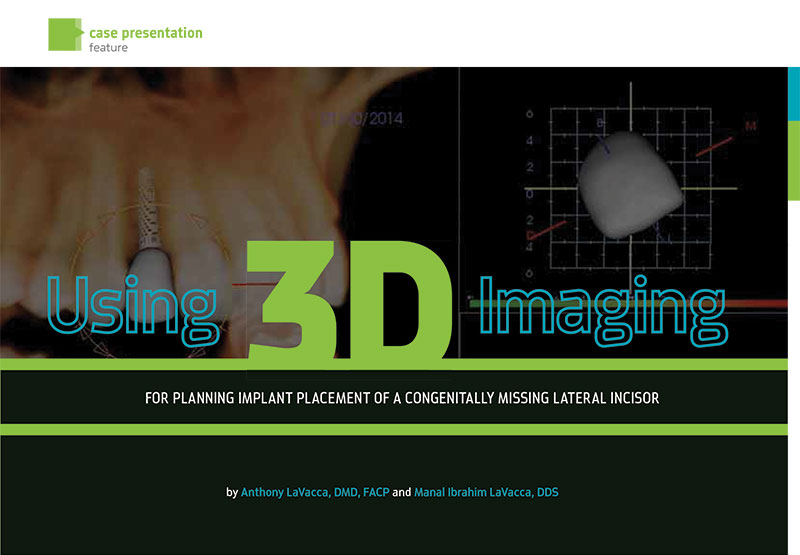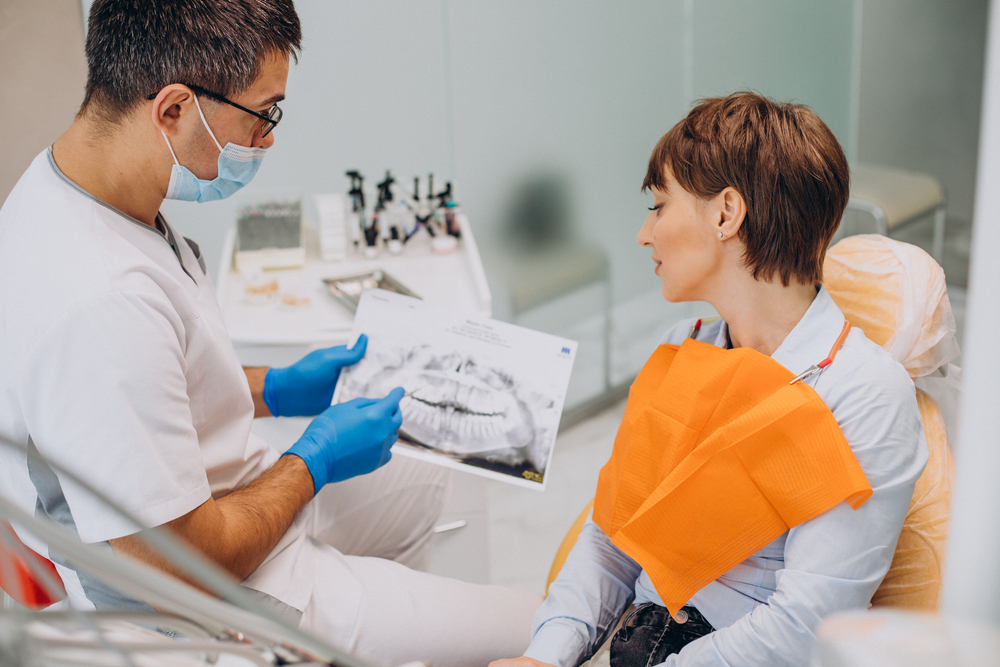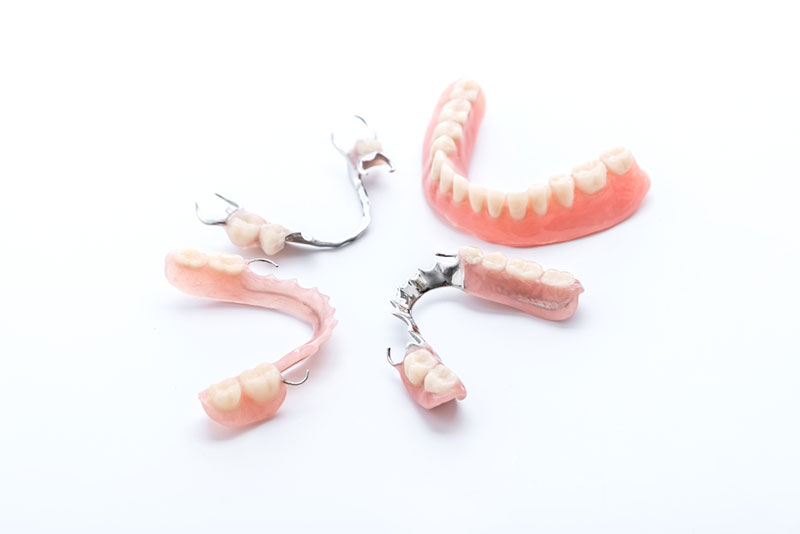At Naperville Dental Specialists, we take a comprehensive approach to care that goes beyond just making sure our patients have beautiful smiles. What you may not know is that a dentist isn’t only responsible for looking for cavities and gum disease; we also screen for oral cancer and evaluate your overall oral health. Early detection of oral cancer is extremely important and it can save your life. In conjunction with a visual examination, our Naperville dentists utilize VELscope, a handheld, non-invasive oral cancer-screening device that uses a safe, blue-spectrum light to reveal oral abnormalities before they can be seen by the naked eye. Read on to find out everything you need to know about oral cancer and ways you can fight it before it even starts.
What is Oral Cancer?
Oral cancer, or mouth cancer, includes cancer of the tongue, lips, gums, inner lining of the cheeks, roof the mouth and floor of the mouth and oropharyngeal cancer involves the oropharynx (the part of the throat right behind the mouth). Oral cancer makes up nearly 85% of cases in the larger category of head and neck cancers, though brain cancer is its own category. Just as with any cancer, it’s when cells grow uncontrollably and have the potential to invade and damage surrounding tissues and other parts of the body.
Unfortunately, according to the Oral Cancer Foundation, about 49,750 Americans will be diagnosed with oral and oropharyngeal cancer this year and it will result in approximately 9,750 deaths. How fast does oral cancer spread? Well, the majority of oral cancers are a kind called squamous cell carcinoma, which does spread rapidly, and can be deadly. Before you panic, oral cancer survival rates are high when detected early. The five-year survival rate for cancers of the oral cavity and pharynx is 83% for cancer that hasn’t spread, 62% when it has spread to lymph nodes nearby and 38% when the cancer has spread to distant areas of the body. The oral cancer life expectancy statistics do vary slightly depending on where the cancer occurs, for example tongue oral cancer versus lip oral cancer, but, overall, the prognosis is good when it’s treated while in the local stage. Oral cancer isn’t inherently more dangerous than all other types of cancer. The issue is, that it’s often detected after the cancer has metastasized because the symptoms may go unnoticed.
These statistics highlight the importance of early detection, knowing the signs and getting routine oral cancer screenings. Don’t skip those regular visits to your dentist and if you suspect your dentist isn’t evaluating your mouth for oral cancer, ask them to do so. Book an oral cancer screening in Naperville at our office today or if you don’t live in the area, schedule an appointment with your dentist.
Oral Cancer Risk Factors
Researchers haven’t been able to pin down an exact cause of why cells mutate leading to oral cancer but they have identified a number of risk factors for developing the disease. It’s twice as common in men and a large percentage of people with oral cancer are over the age of 40, though it’s now occurring in younger people due to the human papilloma virus (HPV). In addition to age and sex, oral cancer risks factors include:
- Tobacco use – This is the leading risk factor of developing oral cancer and it’s entirely preventable. Cigarette, pipe and cigar smokers are about six times more likely to be diagnosed with oral cancer than nonsmokers. Users of smokeless tobacco products (i.e., chewing tobacco, snuff, dip, etc.) are 50 more times likely to develop oral cancer of the lips, gums and cheeks.
- Heavy alcohol use – Men and women who drink heavily are more likely to develop oral cancer.
- Excessive sun exposure – Frequent and prolonged exposure to the sun has been shown to cause lip cancer.
- Human papillomavirus – Certain strains of the sexually transmitted disease, HPV, particularly HPV16, have been tied to oral cancer.
- Family history of cancer – While environmental factors, like smoking and heavy drinking, are the predominant risk factors, genetics can play a role too. This is why, even if you don’t smoke or drink, it’s still important to get screened for oral cancer.
- A weakened immune system
- A diet low in fruits and vegetables
There has been some debate about whether poor oral hygiene, mouthwashes with alcohol and chronic rubbing from dentures or rough teeth can also be risk factors of oral cancer. However, there hasn’t been definitive evidence to support these theories.
Oral Cancer Symptoms
Patients often want to know what does oral cancer look like? In some cases, it is visible and will show up as a white or red patch. Other signs and symptoms of oral cancer are:
- A sore that bleeds and doesn’t heal
- A lump, growth or thickening of the lining or skin in the mouth
- A rough or crusted area in the mouth
- A change in the way your teeth come together when you bite or in how your dentures fit
- Tongue pain
- Loose teeth
- Jaw stiffness or pain
- A persistent sore throat
- Numbness in the mouth
- Pain or difficulty when swallowing or chewing
If the symptoms last for more than two weeks or you’re bothered by them, make an appointment with your dentist or doctor.
Oral Cancer Treatment
If your dentist finds signs of oral cancer, a biopsy is usually performed to diagnose it. Oral cancer is treated in the same way as other types of cancer and typically involves removing the cancer with surgery followed by radiation or chemotherapy.
Can You Prevent Oral Cancer?
There isn’t a guaranteed way to prevent oral cancer but there are things you can do to reduce your risk of developing it such as:
- Quit using tobacco and if you’ve never used it or already quit, don’t start or pick up the habit again. People often think smokeless tobacco is safer and while it might not be as likely to cause lung cancer, it’s actually more likely to cause oral cancer. Avoid tobacco in all of its forms.
- Drink alcohol in moderation. While not drinking at all is certainly a way to reduce your risk, there’s nothing wrong with having a glass of wine or a beer here and there. However, moderation is key. Drinking heavily can irritate the cells in the mouth and make them susceptible to oral cancer. The Mayo Clinic recommends that women don’t drink more than the equivalent of one drink a day and men limit themselves to no more than two per day.
- Protect yourself from the sun. Avoid prolonged, regular sun exposure to your lips. UV rays can penetrate clouds, so wear a lip product with a broad-spectrum SPF every day, rain or shine. Sporting a wide-brimmed hat is helpful as well. Try to stay in the shade when you can.
- Eat a balanced, healthy diet full of fresh fruits and vegetables. Opt for vegetables in a variety of colors and be sure to get all of your necessary vitamins and minerals. The antioxidants in fruits and veggies may help reduce the risk of cancer.
- Do a self-exam once a month. Use a flashlight and a mirror to check out the inside of your mouth. Be sure to look and feel your lips, gums, the inside of your cheeks, your tongue and the floor and roof of your mouth. Shine the light on the back of your throat and feel around your lower jaw and neck for swollen lymph nodes or lumps. If you see anything concerning or notice something different, call your dentist.
- Visit your dentist regularly and ask for an oral cancer screening. Your dentist can see things you won’t be able to see by looking in the mirror and they have the knowledge to identify signs of oral cancer.
With a healthy lifestyle, you can lower your risk of developing oral cancer. However, there’s no way to prevent cancer entirely and it really boils down to early detection, which is where your dentist comes in. The team at Naperville Dental Specialists knows what to look for and by catching cancer while it’s still local, the chances of successful treatment are excellent. As a practice that uses VELscope technology, we can even further improve the odds of finding abnormalities in the earliest stages. Schedule a visit and an oral cancer screening at Naperville Dental Specialists online or by calling us at (630) 848-2010. Let’s work together to ensure you maintain amazing oral health for life.








































